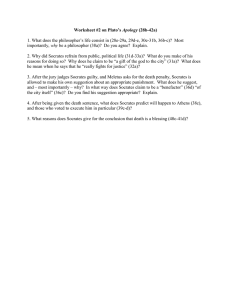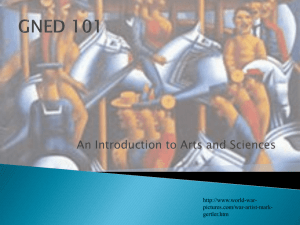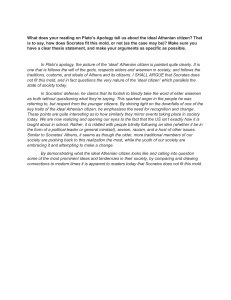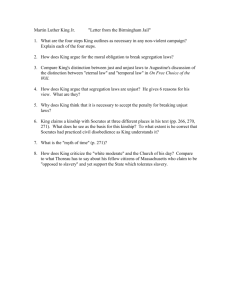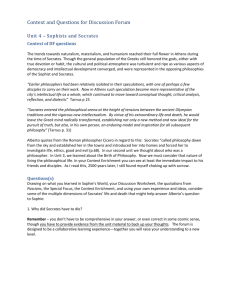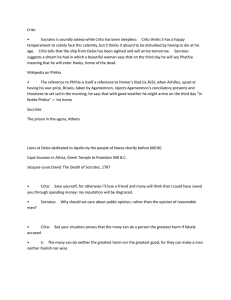Tragedy: 21L422 Fall, 2002 14N-438 Lecture #6
advertisement
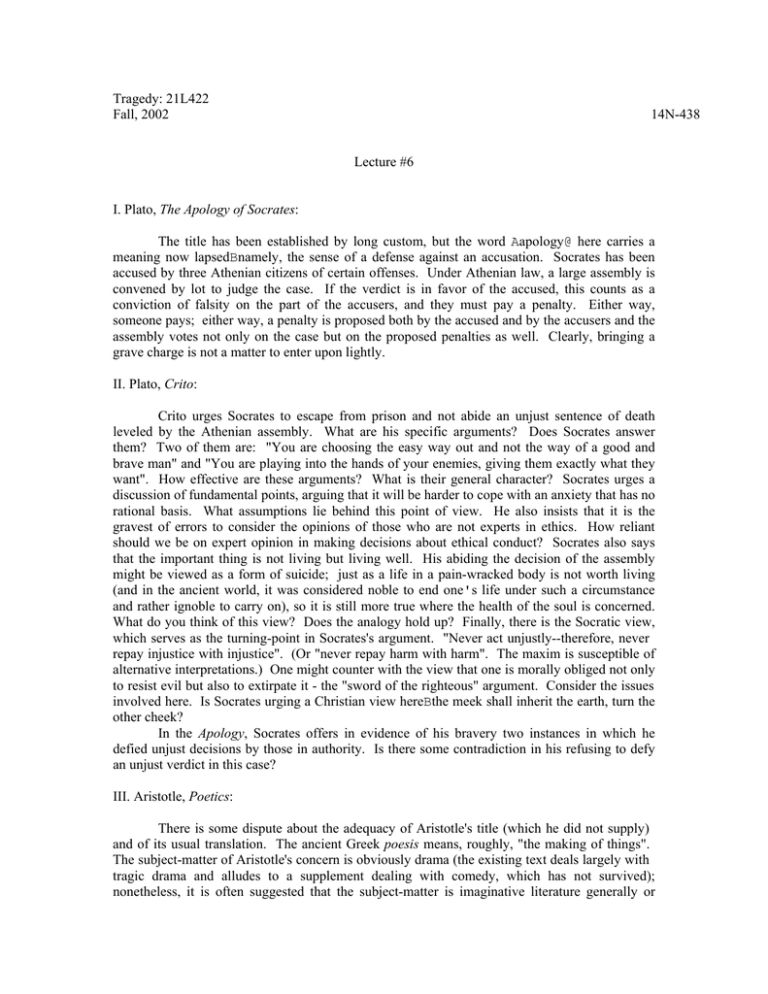
Tragedy: 21L422 Fall, 2002 14N-438 Lecture #6 I. Plato, The Apology of Socrates: The title has been established by long custom, but the word Aapology@ here carries a meaning now lapsedBnamely, the sense of a defense against an accusation. Socrates has been accused by three Athenian citizens of certain offenses. Under Athenian law, a large assembly is convened by lot to judge the case. If the verdict is in favor of the accused, this counts as a conviction of falsity on the part of the accusers, and they must pay a penalty. Either way, someone pays; either way, a penalty is proposed both by the accused and by the accusers and the assembly votes not only on the case but on the proposed penalties as well. Clearly, bringing a grave charge is not a matter to enter upon lightly. II. Plato, Crito: Crito urges Socrates to escape from prison and not abide an unjust sentence of death leveled by the Athenian assembly. What are his specific arguments? Does Socrates answer them? Two of them are: "You are choosing the easy way out and not the way of a good and brave man" and "You are playing into the hands of your enemies, giving them exactly what they want". How effective are these arguments? What is their general character? Socrates urges a discussion of fundamental points, arguing that it will be harder to cope with an anxiety that has no rational basis. What assumptions lie behind this point of view. He also insists that it is the gravest of errors to consider the opinions of those who are not experts in ethics. How reliant should we be on expert opinion in making decisions about ethical conduct? Socrates also says that the important thing is not living but living well. His abiding the decision of the assembly might be viewed as a form of suicide; just as a life in a pain-wracked body is not worth living (and in the ancient world, it was considered noble to end one's life under such a circumstance and rather ignoble to carry on), so it is still more true where the health of the soul is concerned. What do you think of this view? Does the analogy hold up? Finally, there is the Socratic view, which serves as the turning-point in Socrates's argument. "Never act unjustly--therefore, never repay injustice with injustice". (Or "never repay harm with harm". The maxim is susceptible of alternative interpretations.) One might counter with the view that one is morally obliged not only to resist evil but also to extirpate it - the "sword of the righteous" argument. Consider the issues involved here. Is Socrates urging a Christian view hereBthe meek shall inherit the earth, turn the other cheek? In the Apology, Socrates offers in evidence of his bravery two instances in which he defied unjust decisions by those in authority. Is there some contradiction in his refusing to defy an unjust verdict in this case? III. Aristotle, Poetics: There is some dispute about the adequacy of Aristotle's title (which he did not supply) and of its usual translation. The ancient Greek poesis means, roughly, "the making of things". The subject-matter of Aristotle's concern is obviously drama (the existing text deals largely with tragic drama and alludes to a supplement dealing with comedy, which has not survived); nonetheless, it is often suggested that the subject-matter is imaginative literature generally or fiction generally. English has no word whose meaning encompasses imaginative literature, and so poetics must do by default.


